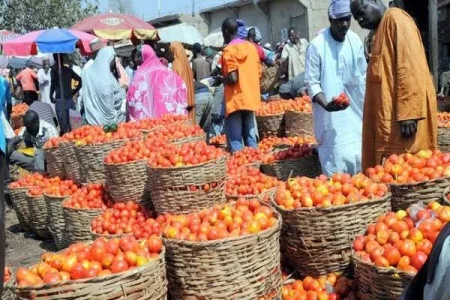
Tomato and pepper prices in Jos, Plateau State, have reached alarming heights, affecting consumers and businesses. Despite being a key producer, the region grapples with scarcity and inflated costs. Stakeholders urge government action to address the crisis and restore stability to the market.
The recent surge in tomato and pepper prices in Jos, Plateau State, has left residents reeling. Despite being a significant producer, the state faces an unprecedented challenge as prices soar beyond affordability. This surge has ramifications across households and businesses, with consumers struggling to procure these essential commodities, and traders facing disrupted supply chains.
The impact of this price hike is far-reaching. Many households rely on tomatoes and peppers as staple ingredients, making the surge particularly burdensome. As consumers grapple with the unaffordable prices, some are forced to seek alternative ingredients or reduce consumption. This scarcity also affects businesses, such as restaurants and food vendors, who find it challenging to maintain their menus amidst soaring costs.
Stakeholders from Farin Gada, a prominent perishable market, lament the unprecedented price hikes. Nasiru Sani, a stakeholder and former market chairman, highlights the drastic increase, with prices reaching unprecedented levels. The root cause of this crisis is attributed to a severe decrease in supply, exacerbated by the removal of fuel subsidies.
Farmers, already grappling with rising costs of inputs and transportation, are compelled to adjust prices to break even. The increased cost of diesel, vital for irrigation systems and machinery, further burdens farmers. As a result, many farmers have reduced cultivation, exacerbating the scarcity in the market.
To remedy the situation, stakeholders advocate for government intervention.
They call for the reinstatement of fuel subsidies to alleviate farmers' burdens and reduce prices. Additionally, investing in irrigation infrastructure and mechanization is proposed to enhance productivity and reduce reliance on costly inputs. Overall, the tomato and pepper crisis underscores the need for proactive measures to mitigate the impact on farmers and consumers alike.




